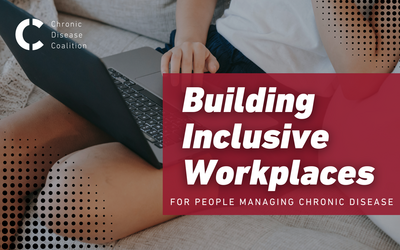
"It gave me my life back. I was able to get a job."
In our most recent Chronic University about rare diseases, one of our panelists mentioned an innovative treatment that allowed her to get back to work, underscoring how important employment is for individuals managing chronic illnesses. While complaining about work is a time-honored tradition, very few people would willingly choose under- or unemployment. In the United States, employers often provide both pay and medical insurance, making work synonymous with self-sufficiency.
However, as we approach Labor Day, it's essential to recognize that work isn't merely about sustenance—it's a vital source of purpose and community. We require work for practical and emotional reasons, and having the ability to transition into and out of work is a powerful capability.
This delicate balance is what individuals with chronic diseases navigate daily. They recognize that work offers resources and self-worth, as affirmed by the Chronic Disease Coalition's team of patient ambassadors. Simultaneously, many employers boast about their commitment to supporting employee well-being. Yet, what does "well-being" truly entail? Is it limited to lunchtime yoga sessions or gym discounts? Should it extend to remote work options for chronic fatigue, post-Covid challenges, and other chronic conditions?
For managers, creating an inclusive and supportive workspace for all employees isn't just ethically sound—it enhances productivity, engenders loyalty, and propels overall team success. Nonetheless, understanding individual needs can be complex. This article aims to shed light on the significance of accommodating chronically ill employees and offer strategies for managers to foster thriving work environments.
These circumstances are becoming increasingly common. The Covid-19 pandemic has reshaped our approach to work, leading many individuals—even post-recovery—to manage energy and health differently. Employers displaying compassion and acknowledging the lasting impacts of the virus can build stronger employee-manager relationships. By accommodating their needs, managers tap into employees' unique insights, bolstering team performance.
Creating open communication and innovative solutions is paramount. Establishing an environment where employees can discuss health challenges fosters trust. Recognizing that each situation is unique, honest conversations help managers identify necessary accommodations, enabling employees to excel.
Adhering to the legal framework of reasonable accommodation is crucial. Laws such as the Americans with Disabilities Act (ADA) mandate employers to adjust work conditions to enable individuals with disabilities and chronic illnesses to fulfill their roles effectively.
See our Chronic University on Workplace Discrimination for tips for both employees and employers.
Empathy and respect drive engagement. Managers might be inclined to default to generic solutions or frustration, but viewing these conversations as opportunities for connection is vital. Collaborative problem-solving benefits all parties in the long run.
See Patients Rising for more insight on energy management.
Flexibility is key. Allowing flexible schedules or telecommuting empowers employees to manage energy levels and reduce the stress of balancing health and work commitments.
Maintaining an ongoing conversation is essential. Regular check-ins allow managers to evaluate accommodation effectiveness and make adjustments. It's common for non-traditional working hours to be penalized, even if productivity matches those following a 9-5 schedule. Transparent metrics ensure fairness for all team members.
Inclusion, a corporate mission, vision, or value, comes to life here. Companies that embrace diverse backgrounds, abilities, and health statuses reap the benefits. (Roxane Gay writes this for a chronically ill employee and this about a manager’s struggles.)
For support, various legal and management resources are available:
- U.S. Equal Employment Opportunity Commission (EEOC) Offers information on employment discrimination laws, helping managers understand ADA obligations and reasonable accommodations.
- Society for Human Resource Management (SHRM) Provides expertise on workplace issues for better collaboration between employers and employees.
- Job Accommodation Network (JAN) Offers practical solutions for supporting chronically ill employees through workplace accommodations.
- Disability Management Employer Coalition (DMEC) Provides education, tools, and resources to optimize workforce productivity and maintain compliant absence and disability programs.
- Center for Disease Control and Prevention (CDC) Offers guidelines for managing health-related challenges, including post-infection considerations.
Creating a truly inclusive workspace involves effort, but the dividends—loyalty, innovation, and a thriving team—are worth it. By accommodating the needs of chronically ill employees, managers build environments where everyone can thrive.